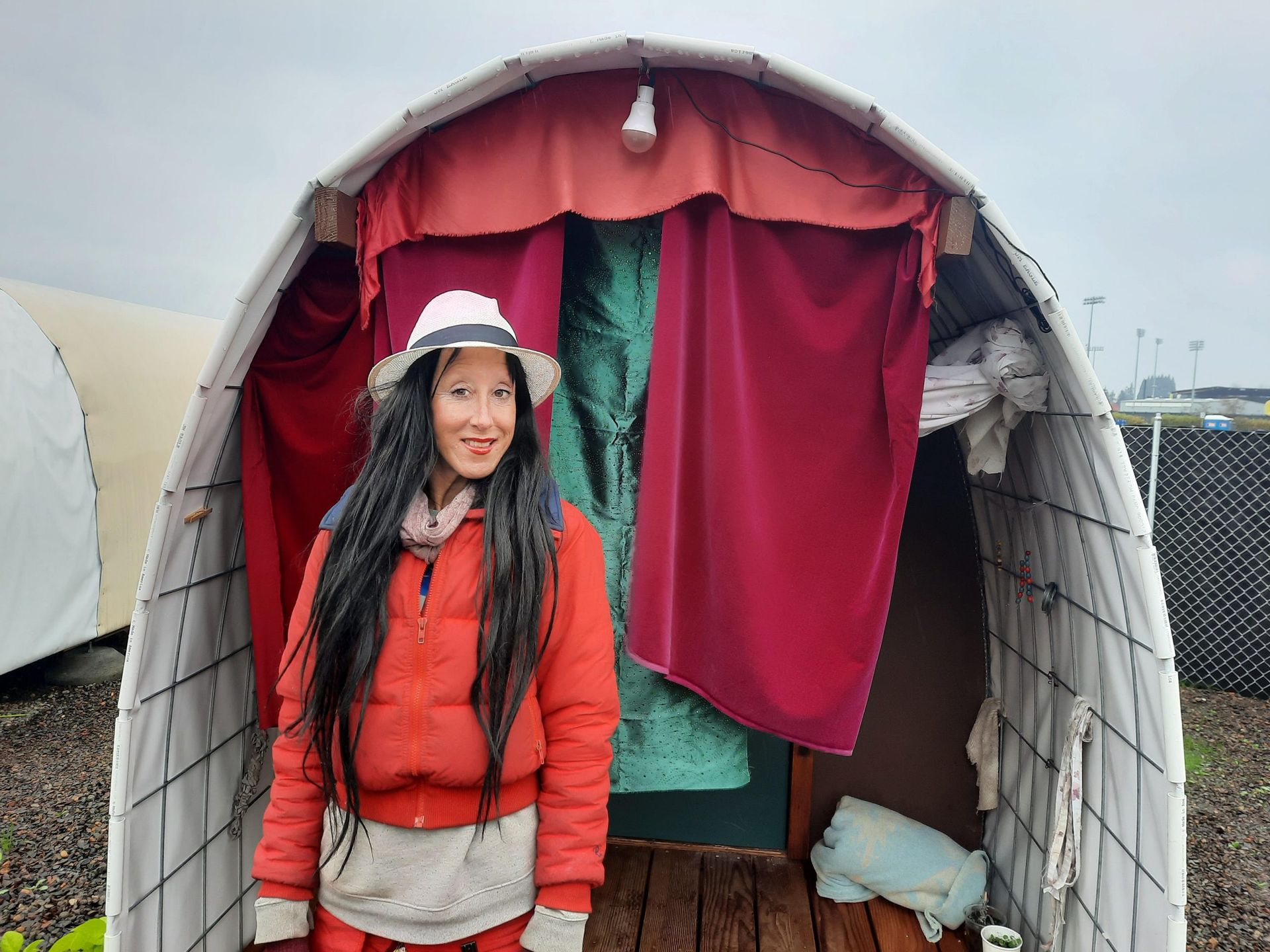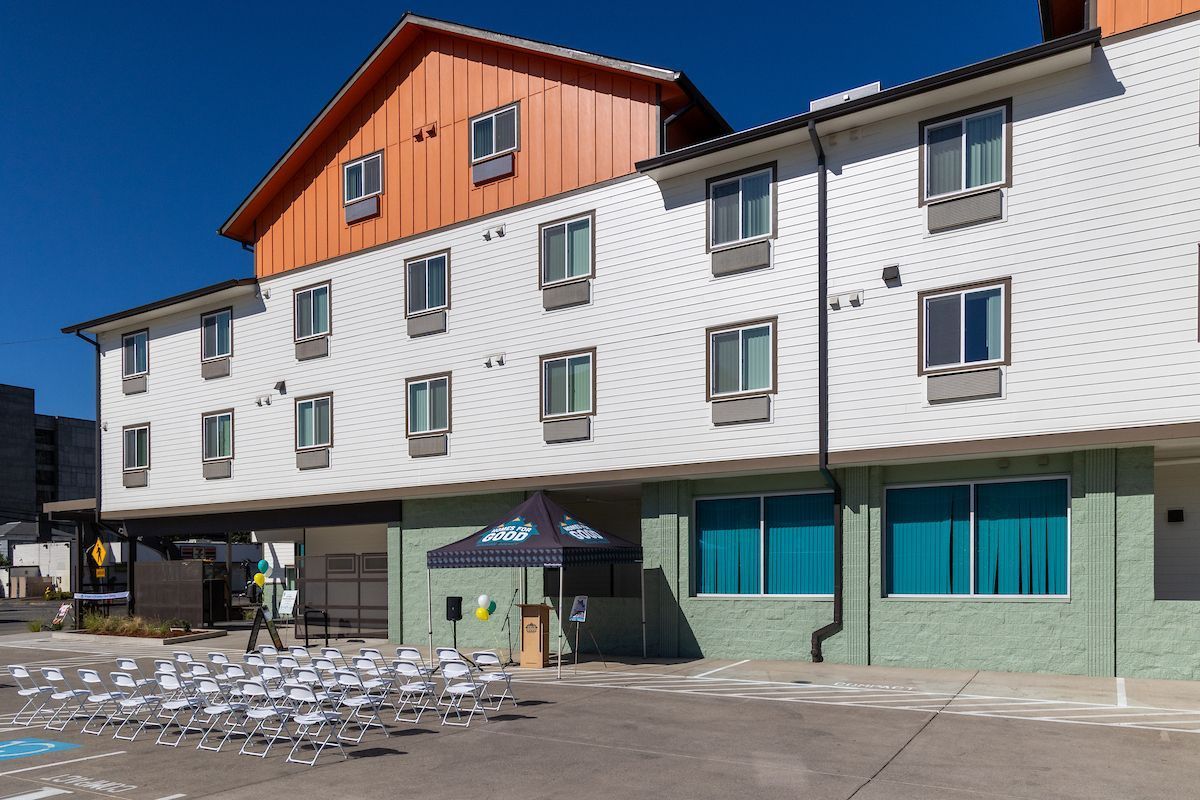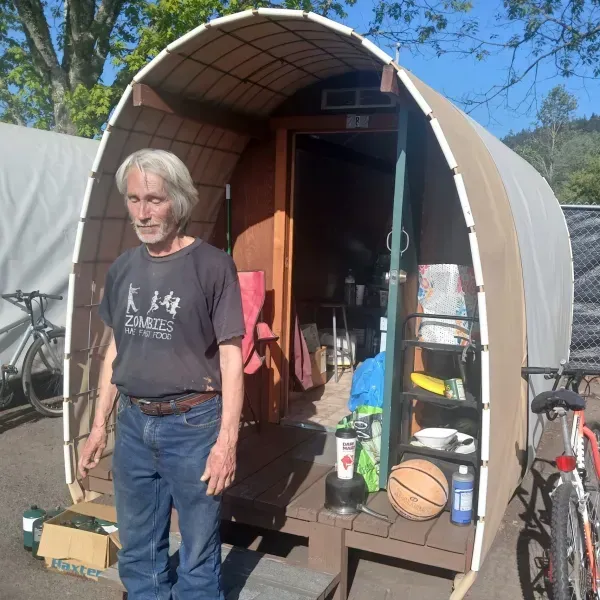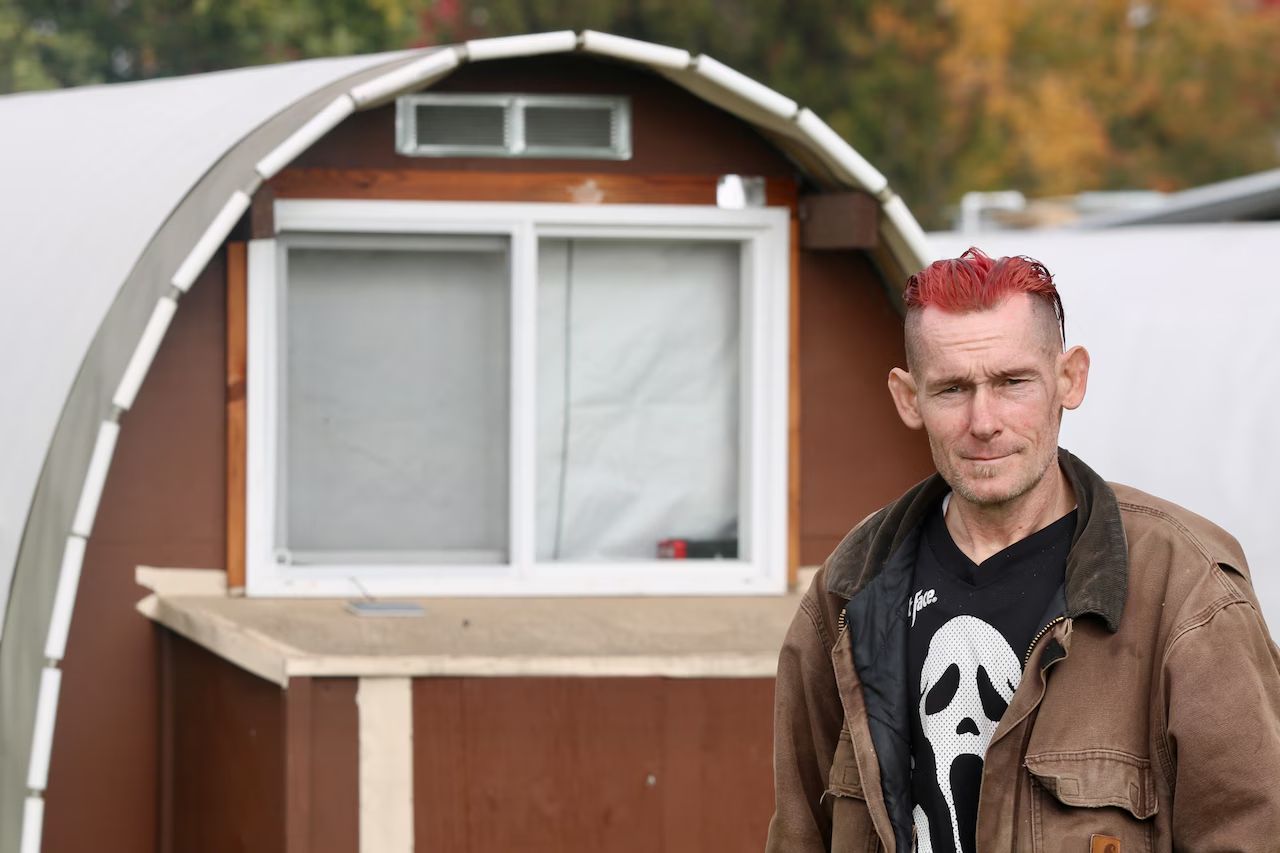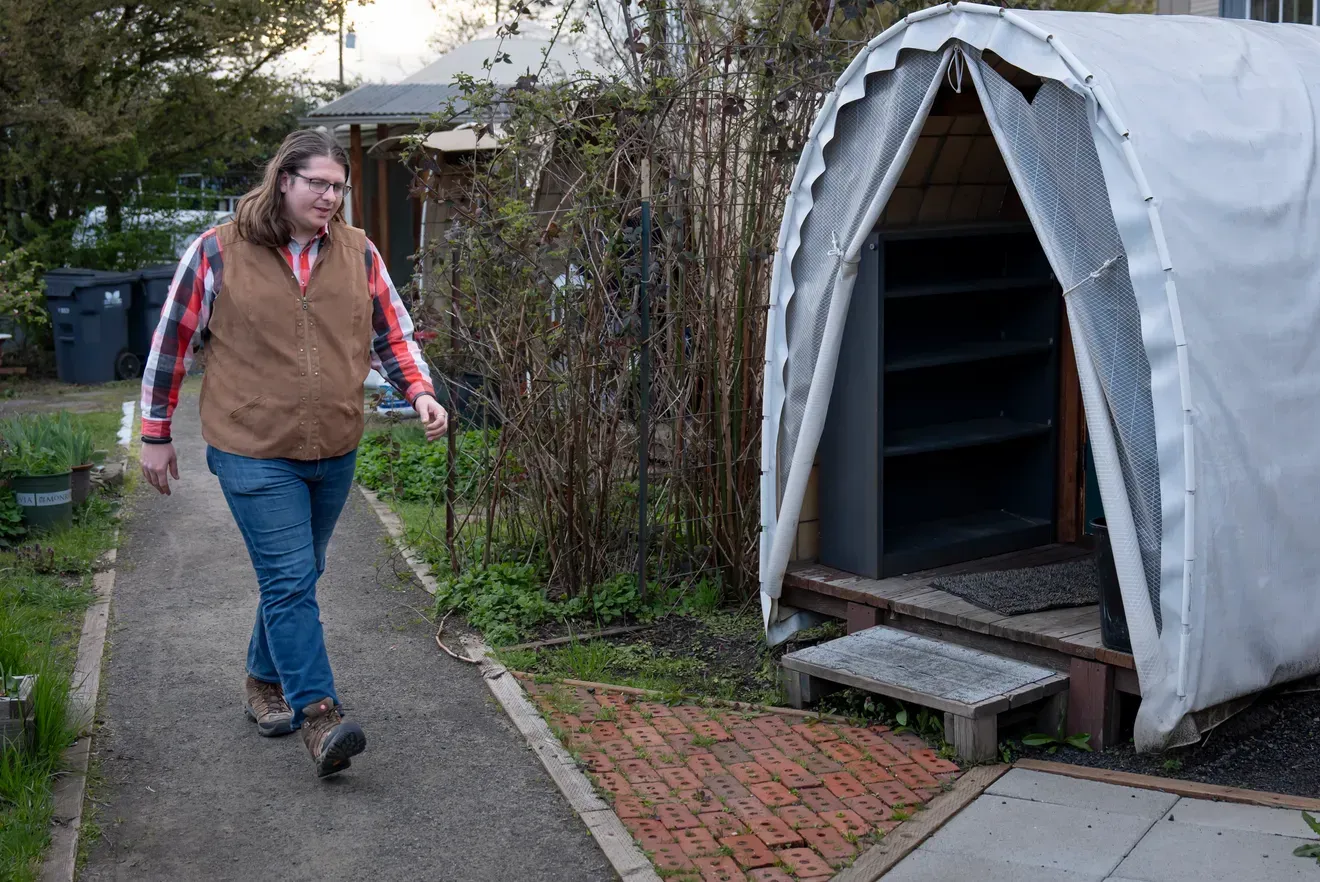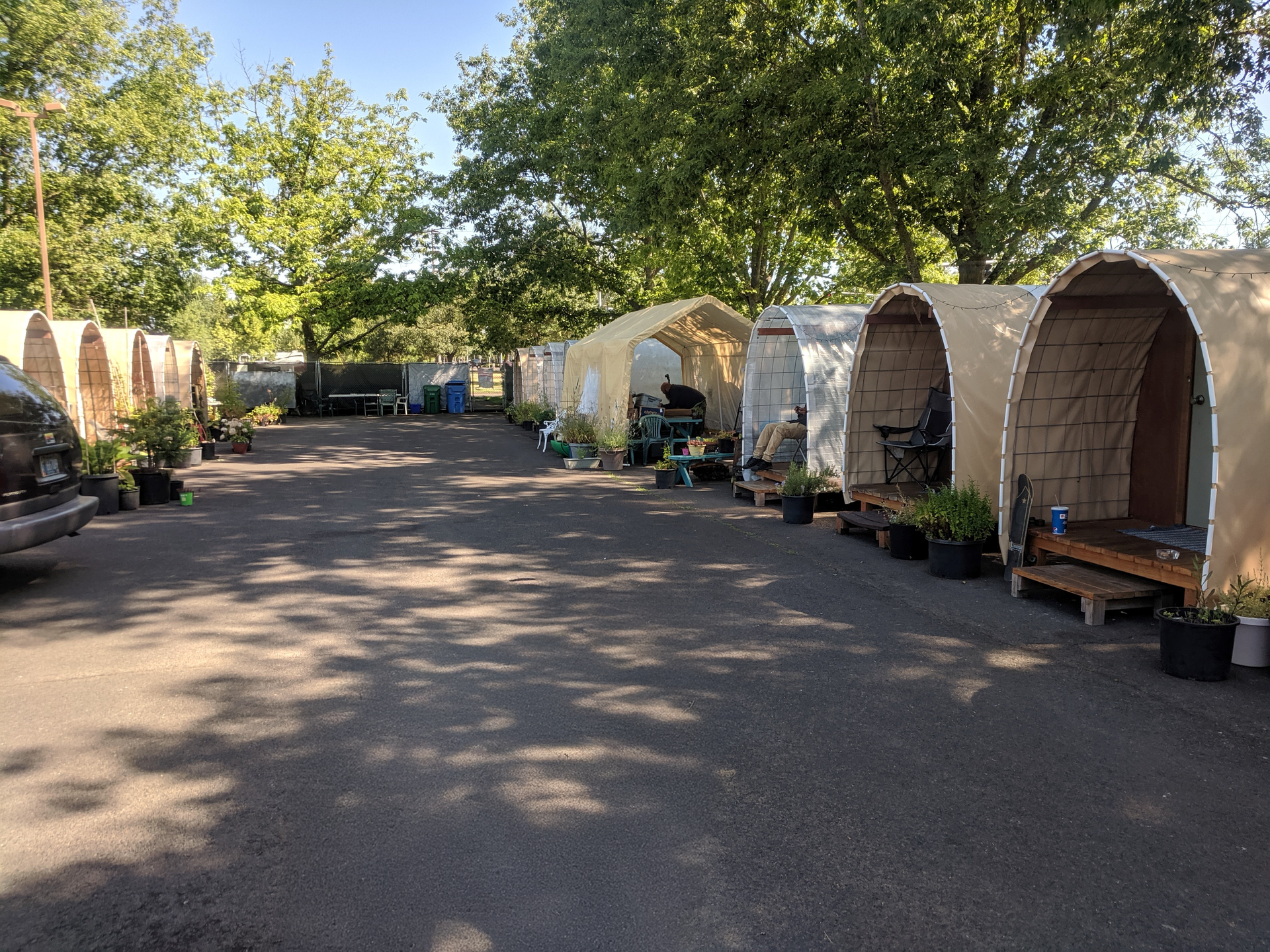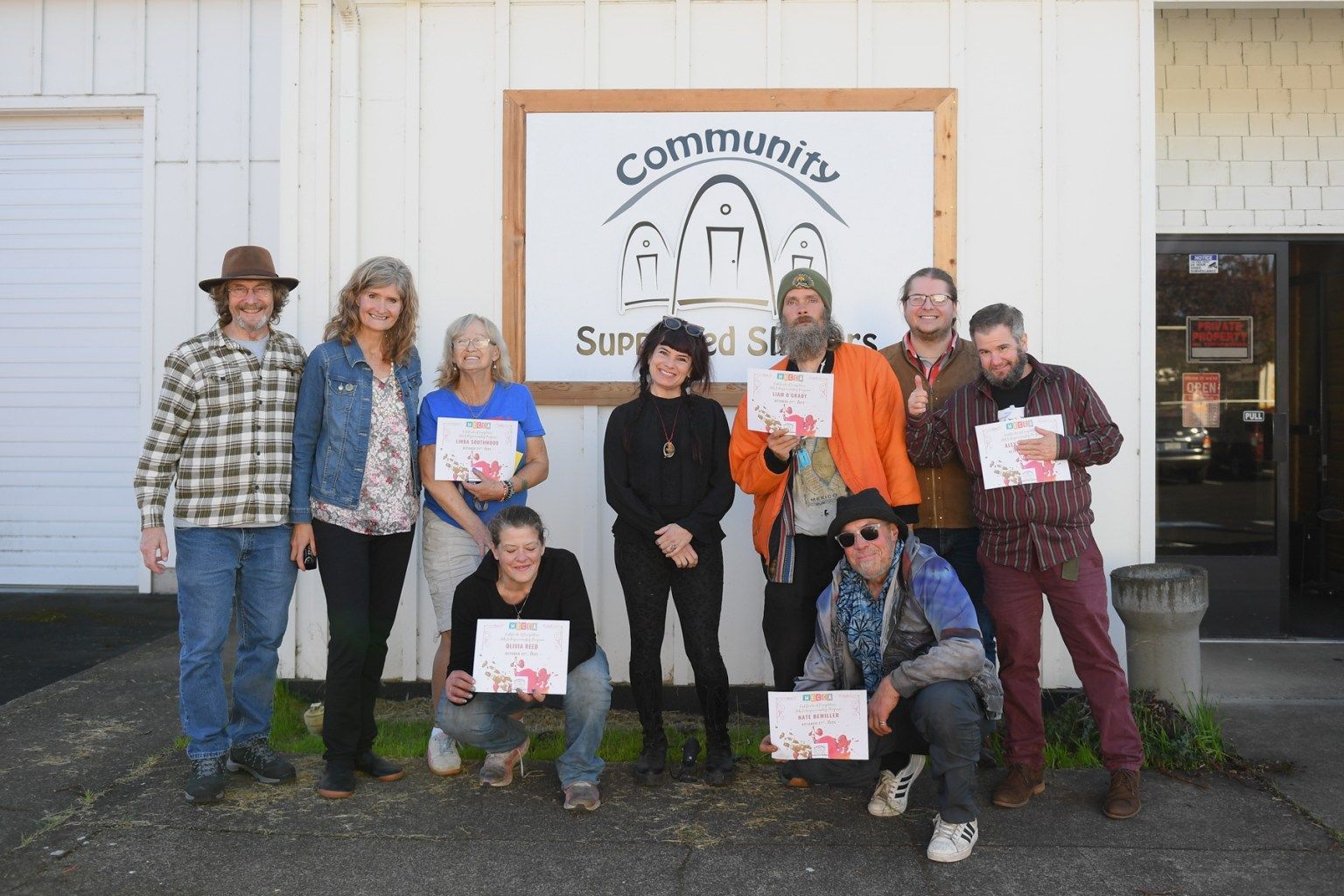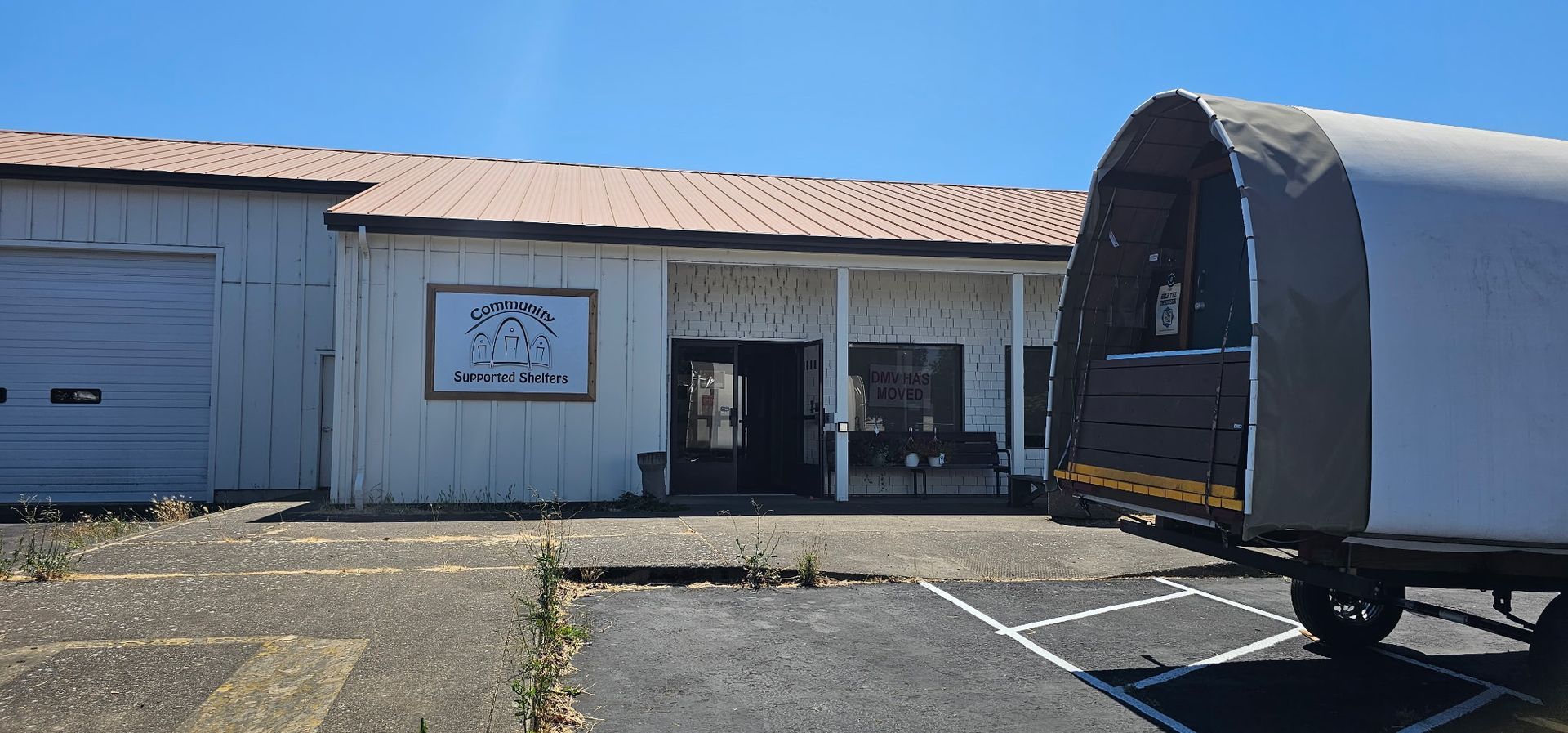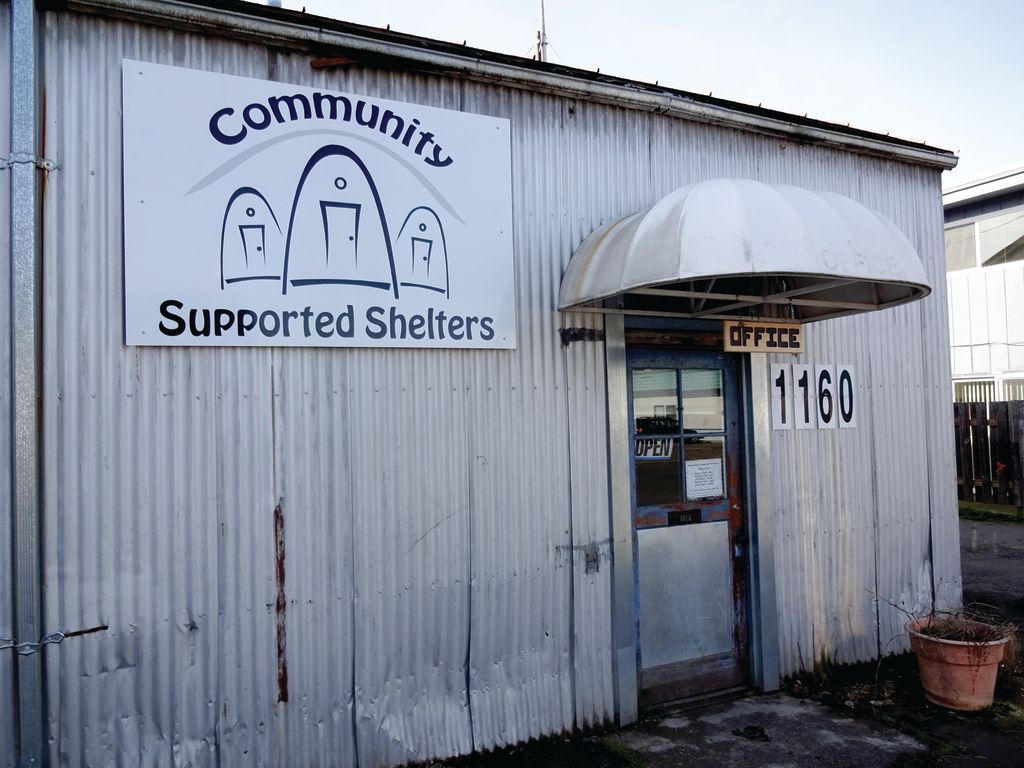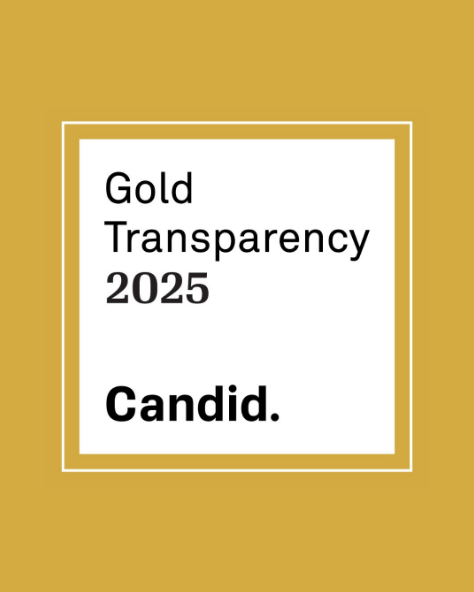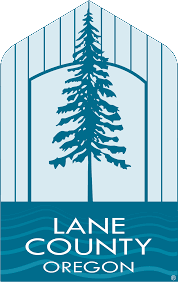Becoming a “Legal Human”:
Elena Mulroney’s Quest for ID
Elena Mulroney’s identification papers went up in flames in a California wildfire. That has made her life very difficult ever since.
Elena, 35, was born in Australia but her father was American, making her an American citizen. She grew up in Romania before coming to the United States to attend Columbia University. Her travels eventually brought her to Eugene where she was living outside in an open field near some friends’ house. As the end of last summer approached, her friends suggested she find better shelter. She moved into a Hut in the CSS Lot 9 Safe Spot in August—still with no identification.
“I’m stuck here without any identification,” she said last October. “And this is very difficult because of the distance from where I am from. If I can’t find any identification, I can’t, of course, be a legal human in the world and be working again.”
The lack of identification papers and the challenge of acquiring new documentation is a common and daunting problem for people experiencing homelessness.
“It’s a very common problem,” says Elle Love, who met Elena very early in her time as a CSS Service Navigator and would spend months helping her acquire ID. “When you’ve lived on the streets or when you’ve lived in your vehicle, when you’ve had some sort of traumatic event that’s put you in a situation where you need to be in a shelter program, it’s really easy to lose identification. If you’re living in a camp and a camp gets swept, you can lose all your belongings. There’s lots of opportunities for you to have your identification either lost or stolen. It happens to people all the time.
“People who have more privilege and more stability in their lives don’t experience that as much of a loss: ‘Oh no, I lost my ID or my wallet got stolen. Okay, I’ll just take all the documents I do have. I’ll have my birth certificate, or whatever I have, and take it and get a new one. I’ll have to sit at the DMV and that’ll suck but then it’ll be over.’ It’s not like I have nothing to show, which is a totally different reality that I think I didn’t even have a full grasp of until after going through this process with Elena.
“When you don’t have any form of ID, it’s really difficult to get one form of ID.”
The lack of ID creates major barriers to people trying to rebuild their lives: they can’t work, get housing, travel, or access many social services.
“Life cannot move forward until I have some form of identification,” Elena said last fall. “I need to get identification in order to get paid, to live and work as a human in this nation.”
Elena and Elle initially thought trying to get her a new passport was the best place to start and even contemplated a trip to a State Department office in Seattle. But they gave up on that quickly. “They want a lot of proof of identity,” Elle says. So they started working toward getting an Oregon ID, which is issued by the Oregon Department of Motor Vehicles and is an alternative form of official ID for those who don’t have a driver’s license.
Elena’s first trip to the DMV by herself was very difficult for her. Not only was she denied an Oregon ID, everyone she talked to “had different opinions or different impressions of what the rules are and what is acceptable.”
Elena did have copies of her Certification of Birth Abroad and a U.S. Consular Report of Birth Abroad, both affirming that she had been born outside the United States and was a citizen because her father was a citizen. But they were badly damaged. She also had a voter notification card from Lane County. And Elle was able to get a notification of benefits letter for her from the Oregon Health Plan (OHP) with her date of birth and social security number on it.
When they went together to the DMV, they were still denied. But, Elena says, they were more prepared. “It’s one of those things, the more prepared you are, the more you can ask the right questions.” Elle says they were lucky to get someone at the counter who was willing to take the time to respond when she asked, “Well, what do we need to do to make this work?”
“They went to their books and looked up what they could accept and gave us the right information,” Elena says. The DMV official told them they needed official identification that showed her full name, birthdate, and social security number.
That led them to pursue transcripts and records from Elena’s time at Columbia University. Elle says the online process to get the documents from Columbia wasn’t that difficult—but it took a long time. Columbia was on strike. “I had to call them a bunch and I had to really push it forward. It took a while to do.”
But, Elle says, “Finally, we got them all. And then we went back to the DMV.
“We were both on pins and needles. Is this going to work? We’ve done this so many times. We were just sitting there. Then she got her picture taken. Then they gave us the receipt. After we walked out of there, we just laughed in the car for a minute. We were in shock, honestly. We were just like, wow, this finally worked. For me it was only four months of pushing for this, but for her it’s been a really long time.”
“It took a lot of patience,” Elena says. “But when I finally received the ID, I was elated. I was very, very happy.”
But she’s not done.
“I felt really good about being able to break through those barriers with her,” Elle says. “But like with a lot of clients, you feel relief when you do something good for them, but you also feel like they never should have been put in this situation to begin with. It’s a bittersweet feeling of ‘cool, you did something,’ but also you shouldn’t have had to do that thing at all.”
Elena appreciates having Elle support her through this process: “She’s a fantastic human, and she has a very great organizational mind. So to put our brains together was good, because we could keep returning to the same problems with new eyes to find solutions. And while I had at times wished the process to move a little faster, I think she was also very wise to see the right avenues to follow when it was possible.”
Elle left CSS for an exciting new job in Washington state not long after Elena’s Oregon ID had been secured. She left behind detailed notes about the tortured process that Elena has had to go through, to help other CSS clients and staffers deal with ID challenges.
Elena is glad her ongoing quest for ID may make things easier for other CSS clients. “Even though for me it was a very dramatic struggle, and still is actually, it is sort of cool to know that in a way we are solving problems that other people have and that it might be really, really useful if we learn how to solve them.”



